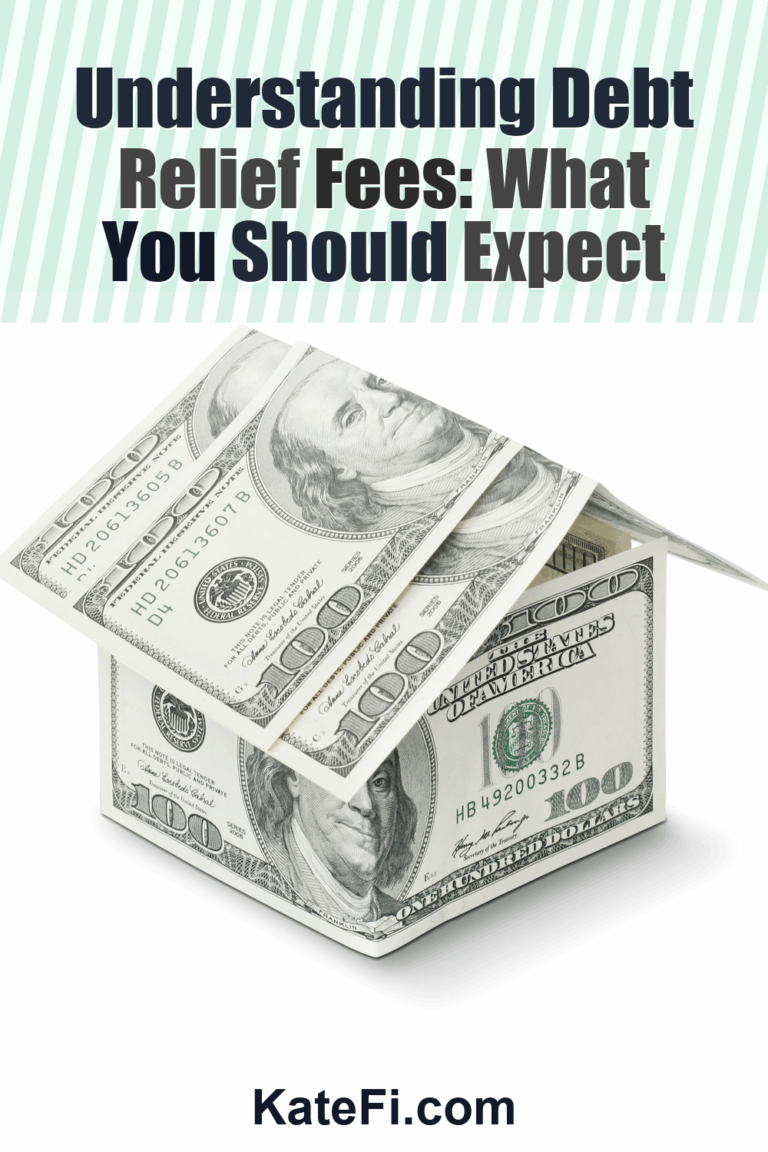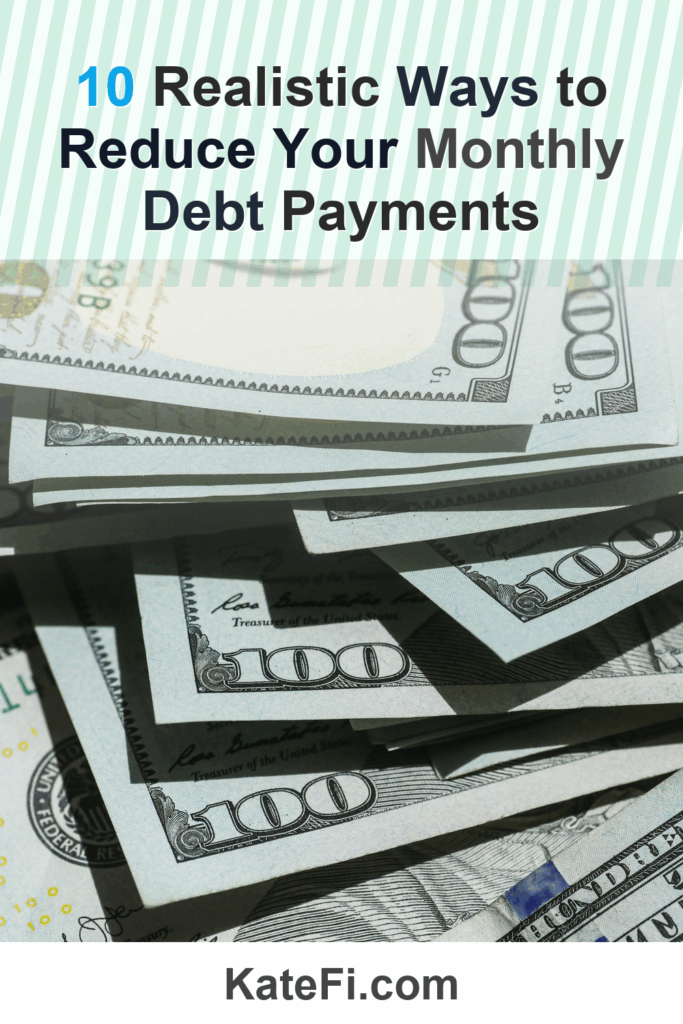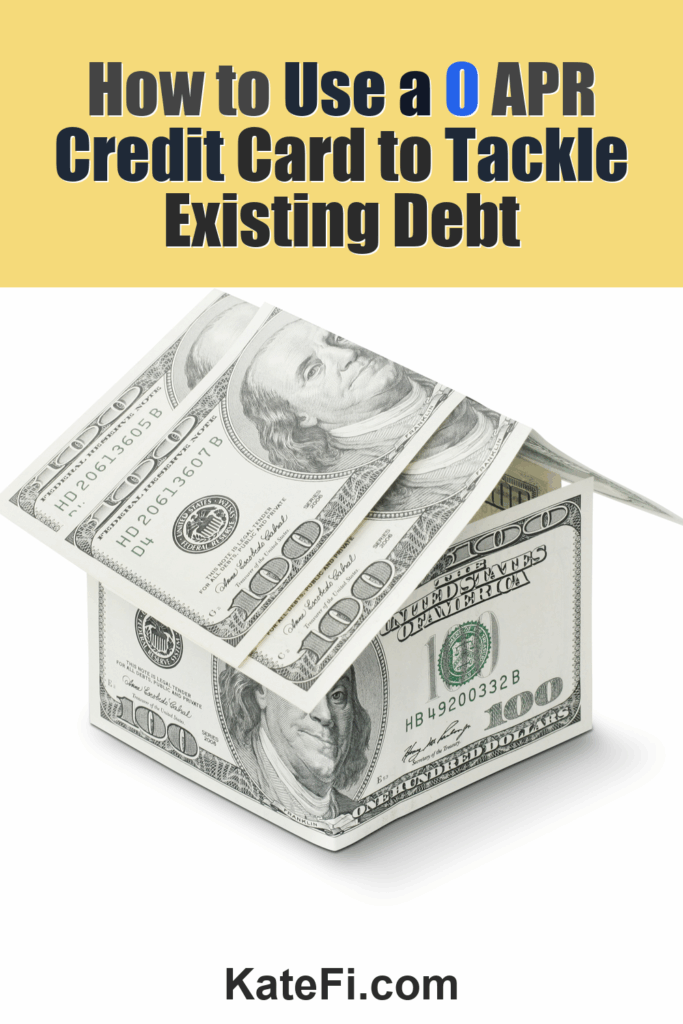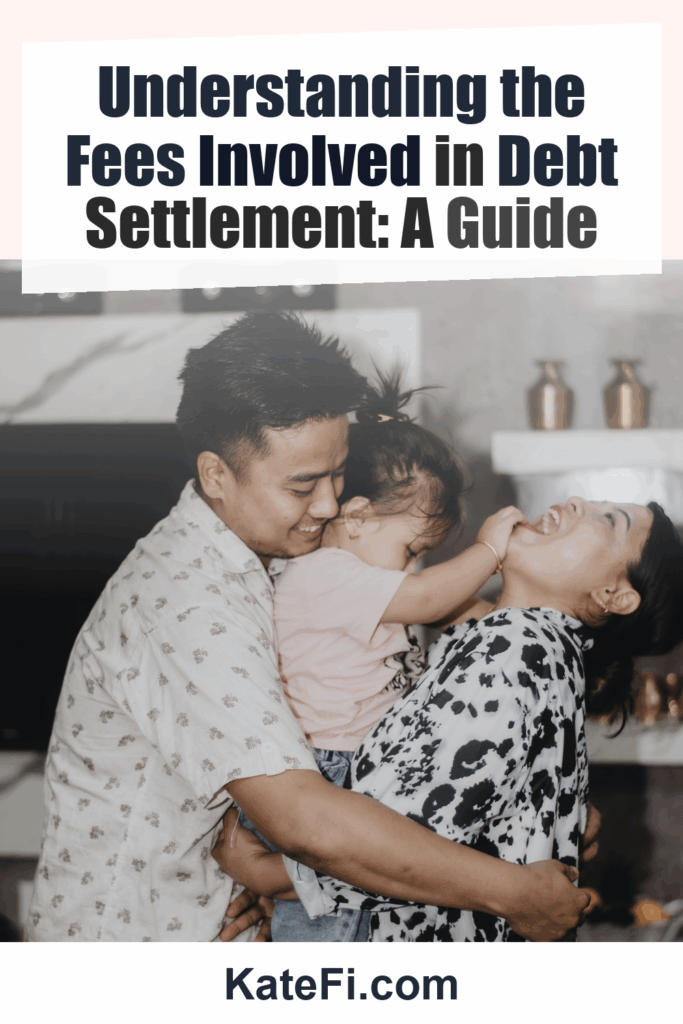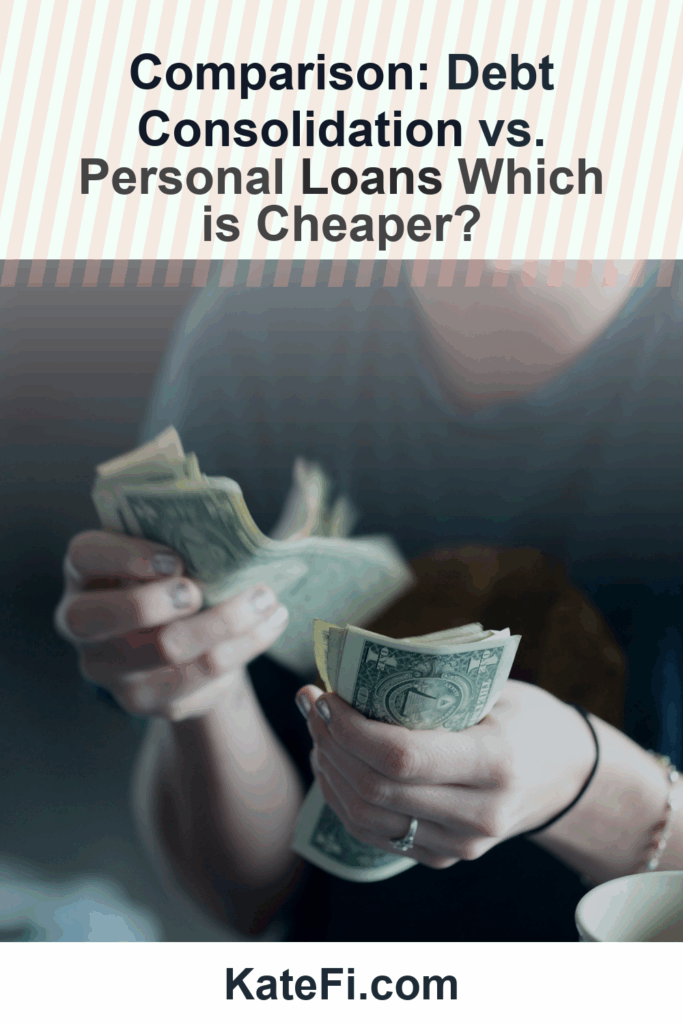Understanding Debt Relief Fees: What You Should Expect
Debt can feel overwhelming, leaving you with a mountain of stress and uncertainty. Thankfully, debt relief options can help lighten that load. However, understanding the associated fees and which option is best for you—whether it’s settlement, consolidation, or a debt management plan (DMP)—is crucial. Let’s dive deep into this topic with a comprehensive FAQ to address your most pressing questions.
Love our content? Show your support by following us — pretty please!🥺
FOLLOW ON PINTEREST
Hi! I’m Kate, the face behind KateFi.com—a blog all about making life easier and more affordable.
What Are Debt Relief Fees?
Lower Your Unsecured Debt
If you have $5,000+ in credit card or personal loan debt, a free consult can review options like settlement or hardship plans.
- One-on-one call to review your debts and goals
- See potential monthly payment reductions
- No obligation to enroll
Not available in IL, KS, OR, TN, UT, WV.
Debt relief fees are the charges incurred when you enroll in a program designed to reduce your debt. These can vary based on the type of service you choose, the amount of debt you have, and the company you work with. Understanding these fees can help you make informed decisions.
What Types of Debt Relief Programs Are Available?
There are three primary options for debt relief:
- Debt Settlement: This involves negotiating with creditors to settle your debt for less than you owe.
- Debt Consolidation: This means combining multiple debts into a single loan with a lower interest rate.
- Debt Management Plan (DMP): This is a structured repayment plan that typically involves working with a credit counseling agency to pay off your debts over time.
But which one should you choose?
Who Should Consider Debt Settlement?
👉 Start Your Free Debt Relief Review
Not available in IL, KS, OR, TN, UT, WV.
Q: What is debt settlement, and who is it for?
Debt settlement is ideal for individuals facing financial hardship and struggling to meet minimum payments. It typically suits those with unsecured debt, like credit cards, medical bills, or personal loans, where the creditor might accept a lump sum that’s less than the total owed.
Q: What fees can I expect with debt settlement?
Fees for debt settlement usually include a percentage of the amount saved or a monthly fee. Always clarify the fee structure before enrolling to avoid surprises.
✅ See If You Qualify for Debt Relief
Who Should Consider Debt Consolidation?
Q: What is debt consolidation?
Debt consolidation allows individuals to combine multiple debts into one single loan. This can make it easier to manage payments and possibly reduce interest rates.
Q: Who is debt consolidation for?
This option is ideal for those with multiple high-interest debts who can manage regular monthly payments on a new loan. It’s also beneficial for those seeking a straightforward repayment process.
Q: What are the typical fees for debt consolidation?
Depending on the lender, you may encounter origination fees, balance transfer fees, or annual fees. Be sure to read the fine print and understand the total cost.
Who Should Consider a Debt Management Plan (DMP)?
Understand pros/cons of settlement vs consolidation vs DMP for your exact mix of debts.
Not available in IL, KS, OR, TN, UT, WV.
Q: What is a debt management plan?
A DMP involves working with a credit counseling agency to create a structured repayment plan. The agency negotiates with creditors on your behalf.
Q: Who is DMP suited for?
If you’re facing difficulty managing monthly payments but can still afford to pay back your debts over time, a DMP can be a good option.
Q: What are the fees associated with a DMP?
Credit counseling agencies usually charge a setup fee and monthly fees, often based on the amount of debt enrolled in the plan.
Understanding Fees: A Quick Comparison Table
| Debt Relief Option | Potential Fees | Ideal For |
|---|---|---|
| Debt Settlement | Percentage of savings, monthly fees | Individuals in severe financial distress |
| Debt Consolidation | Origination fees, interest rates | Those with multiple high-interest debts |
| Debt Management Plan | Setup fees, monthly fees | Individuals who can afford regular payments |
Common Questions About Debt Relief Fees
What You’ll Learn on the Call
- Estimated timeline and monthly payment range
- How credit may be affected in the short term
- What documents to gather to move faster
Not available in IL, KS, OR, TN, UT, WV.
Q: Are there upfront fees for debt relief programs?
This varies by program. Some companies may charge upfront fees, while others may charge after services are rendered. Always ask about any upfront costs.
Q: What if I cannot afford the fees?
Discuss your situation with your debt relief provider. They may offer payment plans or reduced fees based on your financial hardship.
Q: Can debt relief programs impact my credit score?
Yes, engaging in debt relief programs can affect your credit score. It might lower your score initially, but with timely payments afterward, you can rebuild your credit over time.
Documents to Gather for a Faster Review
To streamline your review process, consider gathering these documents:
- Credit card statements
- Loan agreements
- Pay stubs or proof of income
- Bank statements
- Collection notices
This information helps debt relief professionals assess your situation and recommend the best solution.
What Happens If I Don’t Pay My Debts?
Q: What are the consequences of not paying debts?
Failure to pay can lead to collections, lawsuits, and potential wage garnishments. The best approach is to seek help as soon as you notice you’re struggling.
Q: Should I negotiate my own debts?
You can negotiate, but it requires understanding your creditor’s policies and potential penalties. Hiring a professional can alleviate this stress and increase your chances of a successful outcome.
✅ See If You Qualify for Debt Relief
Final Thoughts: Choosing the Right Path
When it comes to debt relief, understanding your options and the associated fees is vital. Each path—settlement, consolidation, or a DMP—has its benefits and is suited for different financial situations.
Take the Next Step
If you’re feeling overwhelmed by debt, consider getting a free consultation to explore your options. It could be the first step toward a debt-free future.
Important: This content is for education only—not legal, tax, or financial advice. Results and eligible programs vary by situation and state. Fees apply if you enroll and complete a program. Debt relief can affect credit; missed payments may lead to collections/lawsuits. Not available in IL, KS, OR, TN, UT, WV.
Whether you decide on settlement, consolidation, or a DMP, being well-informed will lead to better choices, ultimately helping you regain financial stability and peace of mind.

